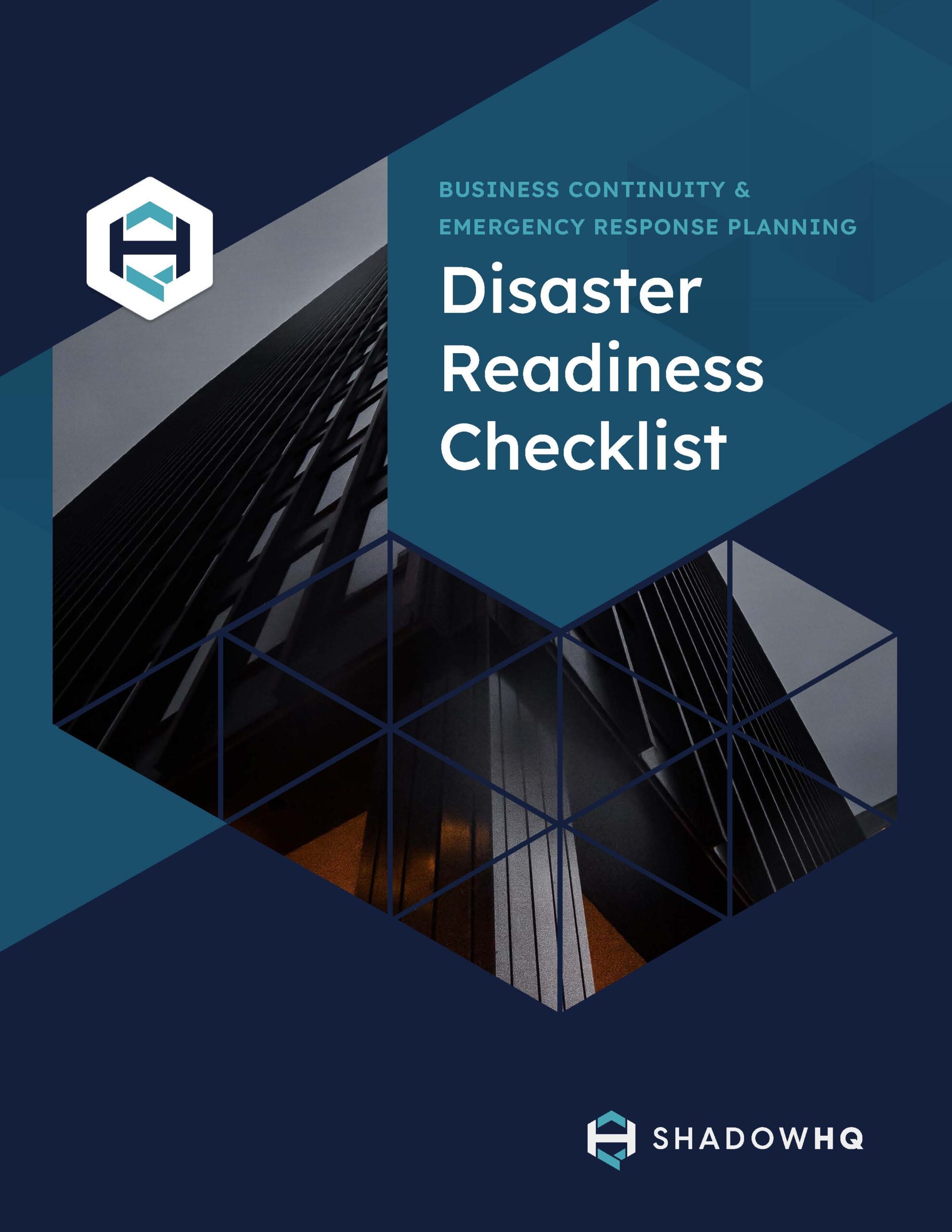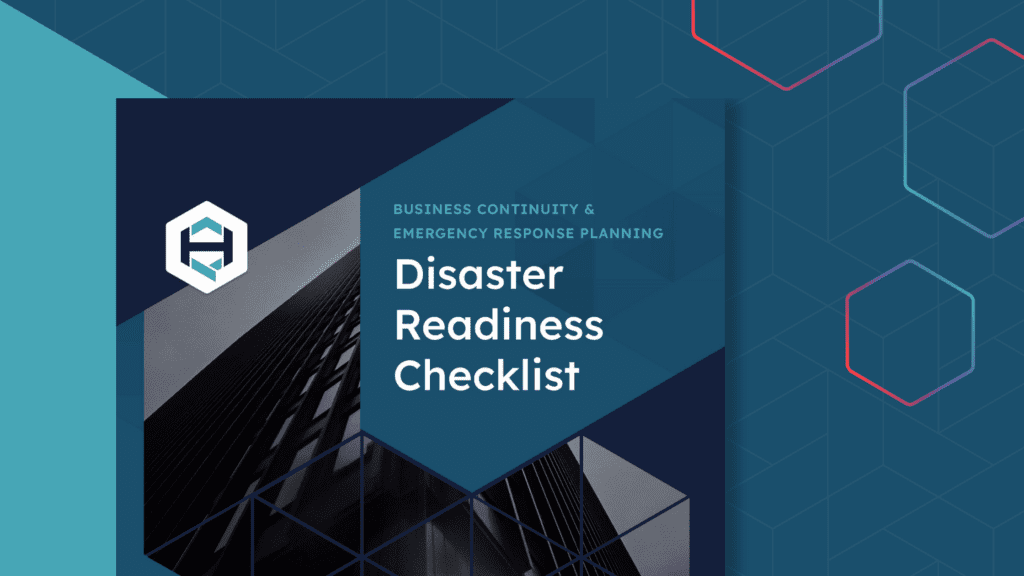Business Crisis Management Plan: Essential Strategies for Effective Crisis Response
A crisis management plan is a structured approach for an organization to respond effectively to significant emergencies. A crisis management plan template provides a structured framework for organizations to customize and effectively navigate various crisis situations, ranging from natural disasters to cyber-attacks or reputational issues.
The plan outlines a designated crisis management team, comprising members from various departments, responsible for directing the response efforts. An effective plan includes a clear communication strategy for both internal and external stakeholders, ensuring timely and accurate information dissemination. This is where a crisis communication plan becomes essential, providing templates and guidelines to help businesses create their plans and maintain clear communication throughout the crisis.
Your crisis management plan details specific response procedures for different crisis scenarios, encompassing immediate actions for safety and strategies to mitigate impact. A report from IBM found that organizations with a tested incident response program saved $2.66 million in breach costs on average compared to those with no incident response team and plan testing.

So, let’s break down common misconceptions and mistakes organizations make with crisis management plans, along with some tips to help you build your plan the right way.
What is Crisis Management?
Crisis management is the process of identifying, assessing, and responding to a crisis that threatens an organization’s operations, reputation, or financial stability. It involves developing a comprehensive plan to mitigate the impact of a crisis and restore normal operations as quickly as possible. Effective crisis management is a critical component of business continuity planning, as it ensures that organizations are prepared to handle unexpected events that could disrupt their operations. By having a robust crisis management process in place, businesses can navigate crises more effectively, minimizing damage and ensuring a quicker recovery.
Definition and Importance of a Crisis Management Plan
A crisis management plan is a comprehensive document that outlines how an organization will respond to a critical situation that could negatively affect its profitability, reputation, or ability to operate. This plan is designed to minimize damage, protect stakeholders, and restore normal operations as quickly as possible. Having a crisis management plan in place is essential for any organization, as it helps to ensure business continuity, protect the organization’s reputation, and prevent long-term damage.
The importance of a crisis management plan cannot be overstated. In today’s fast-paced and interconnected world, crises can occur at any time, and organizations must be prepared to respond quickly and effectively. A well-structured crisis management plan includes a well-defined crisis response team with clear roles and activation protocols. This team is crucial for effective communication and decision-making during a crisis. Such preparation is essential for maintaining business continuity and safeguarding the organization’s reputation during turbulent times.
Benefits of a Crisis Management Plan
A well-structured crisis management plan offers numerous benefits to an organization, including:
-
Minimizing Impact: It helps reduce the adverse effects of a crisis on operations and reputation, ensuring that the organization can continue to function effectively.
-
Financial Protection: By mitigating risks, a crisis management plan reduces the likelihood of financial losses and regulatory fines, safeguarding the organization’s financial stability.
-
Ensuring Business Continuity: The plan ensures that critical business functions continue to operate during a crisis, minimizing downtime and maintaining essential services.
-
Employee and Customer Safety: It prioritizes the safety and well-being of employees and customers, providing clear guidelines for emergency response and communication.
-
Reputation Management: A proactive approach to crisis management enhances the organization’s reputation and credibility, demonstrating a commitment to preparedness and resilience.
-
Decision-Making Framework: It provides a structured framework for decision-making and communication during a crisis, ensuring that responses are coordinated and effective.
By implementing a comprehensive crisis management plan, organizations can better protect themselves against the unpredictable nature of crises and emerge stronger.
Common misconceptions about crisis management plans
Common misconceptions about crisis management plans often lead to underestimation of their importance and effectiveness. Here are a few fundamental misunderstandings:
-
Only for large organizations: There’s a belief that crisis management plans are only necessary for large corporations. In reality, businesses of all sizes can face crises, and having a plan is crucial regardless of the organization’s size.
-
Only for specific industries: Some assume that only certain high-risk industries need these plans. However, crises can occur in any sector, from IT failures to PR scandals, and all industries can benefit from being prepared.
-
Just a PR strategy: While communicating with the public is important, crisis management is not just about public relations. It encompasses many actions, including ensuring employee safety, maintaining operations, and legal compliance.
-
One-time effort: Another misconception is that once a plan is created, it’s set for good. Crisis management plans require regular updates and reviews to remain effective, adapting to new risks and lessons learned from past incidents.
-
Too costly and time-consuming: Some businesses avoid creating a crisis management plan, thinking it’s too expensive or time-consuming. However, the cost of not being prepared can be much higher in terms of financial loss, reputation damage, and recovery efforts.
-
It’s all about immediate response: While immediate response is vital, effective crisis management also involves long-term recovery strategies and learning from the incident to improve future responses.
Understanding and addressing these misconceptions is essential for organizations to appreciate the full value of a comprehensive crisis management plan. Reviewing crisis management plan examples can help organizations create tailored plans for various scenarios, such as financial loss and technological failures.
Reasons why crisis management plans fail
Crisis management plans can fail for various reasons, often due to oversights in both planning and execution. Understanding these pitfalls is crucial for developing an effective strategy:
-
Inadequate risk assessment: Often, crisis plans fail due to insufficient identification and underestimation of potential risks, leaving organizations unprepared for diverse crisis scenarios.
-
Resource and training shortfalls: Limited resources and inadequate crisis management training weaken crisis response, resulting in ill-equipped teams unfamiliar with emergency protocols.
-
Poor communication and leadership: Ineffective communication and weak leadership lead to disorganized responses and misinformation, undermining crisis management efforts.
-
Inflexibility: Rigid plans that cannot adapt to unique, evolving crises often fail, lacking the necessary responsiveness and agility.
-
Neglecting post-crisis review: Failing to analyze and learn from past crises prevents improvement in future crisis management, which is crucial for evolving strategies.
Key Elements of a Crisis Management Plan
A comprehensive crisis management plan should include the following key elements:
-
Risk Assessment: Conducting a thorough risk assessment is a critical component of a crisis management plan. This involves identifying potential risks and threats to the organization, and assessing their likelihood and potential impact. By understanding these risks, organizations can develop targeted strategies to mitigate them.
-
Crisis Management Team: Establishing a dedicated crisis management team is essential. This team should comprise representatives from various departments, including communications, operations, and finance. The team is responsible for coordinating the response efforts and ensuring that all aspects of the crisis are managed effectively.
-
Crisis Communication Strategy: A robust crisis communication strategy is vital for managing stakeholder communications during a crisis. This strategy should include procedures for communicating with employees, customers, media, and other stakeholders, ensuring that accurate and timely information is disseminated.
-
Response Procedures: Clearly defined response procedures outline the steps an organization will take in response to a crisis. These procedures should include actions for containing the crisis, communicating with stakeholders, and restoring normal operations.
-
Business Continuity Plan: A business continuity plan ensures that an organization’s critical business functions continue to operate during a crisis. This plan should address how to maintain essential services and operations, even in the face of significant disruptions.
-
Disaster Recovery Plan: A disaster recovery plan focuses on recovering from a disaster or crisis. It should include procedures for restoring IT systems, recovering data, and returning to normal operations as quickly as possible.
By incorporating these key elements, organizations can develop a robust crisis management plan that prepares them to handle a wide range of potential crises effectively.
Creating a Crisis Management Plan
Creating an effective crisis management plan involves several critical steps:
-
Identifying Potential Risks and Threats: Conduct a thorough risk assessment to identify potential risks and threats that could impact the organization. This includes both internal and external risks, such as natural disasters, cyber-attacks, and operational failures.
-
Assessing Likelihood and Impact: Evaluate the likelihood and potential impact of each identified risk. This helps prioritize risks based on their severity and the potential damage they could cause.
-
Developing a Crisis Management Team: Assemble a dedicated crisis management team with representatives from various departments, including operations, communications, human resources, and finance. Assign clear roles and responsibilities to each team member.
-
Creating a Crisis Response Plan: Develop a detailed crisis response plan that outlines specific actions to be taken in response to different types of crises. This should include procedures for containment, communication, and recovery.
-
Establishing a Communication Strategy: Create a robust communication strategy to ensure timely and accurate information dissemination to all stakeholders during a crisis. This includes internal communication with employees and external communication with customers, media, and other key stakeholders.
-
Conducting Regular Training and Exercises: Regularly train the crisis management team and conduct realistic drills to test the effectiveness of the plan. This helps identify gaps and areas for improvement.
-
Reviewing and Updating the Plan: Continuously review and update the crisis management plan to ensure it remains relevant and effective. Incorporate lessons learned from past incidents and adapt to new risks and changes in the organization.
By following these steps, organizations can create a robust crisis management plan that prepares them to handle a wide range of potential crises effectively.
Crisis Management Team
A crisis management team is a group of individuals responsible for responding to and managing a crisis. This team plays a crucial role in coordinating the organization’s response efforts and ensuring that all aspects of the crisis are managed effectively. The team should include representatives from various departments, such as operations, communications, human resources, and finance, to provide a comprehensive approach to crisis management.
The team should be led by a designated crisis manager who is responsible for overseeing the response efforts and making critical decisions. This individual should have strong leadership skills and a deep understanding of the organization’s crisis management plan. The crisis management team should also be well-versed in their roles and responsibilities, with regular training and exercises to ensure they are prepared to respond effectively when a crisis occurs.
Risk Analysis and Assessment
Risk analysis and assessment are critical components of crisis management planning. This process involves identifying potential risks and threats that could impact the organization, assessing their likelihood and potential impact, and prioritizing them based on their severity. By conducting a thorough risk analysis, organizations can focus their efforts on the most critical risks and develop targeted strategies to mitigate them.
Effective risk assessment involves both qualitative and quantitative analysis, considering factors such as the probability of occurrence, potential financial impact, and the effect on critical business functions. This comprehensive approach ensures that organizations are well-prepared to handle a wide range of potential crises, from natural disasters to cyber-attacks.

Emergency Response Planning
Emergency response planning is a vital component of crisis management. This involves developing a detailed plan to respond to emergencies such as natural disasters, fires, and other unexpected events. The emergency response plan should include procedures for evacuation, emergency contact information, and communication protocols to ensure the safety and well-being of employees and customers.
Key elements of an effective emergency response plan include:
-
Evacuation Procedures: Clear guidelines for safely evacuating the premises in the event of an emergency, including designated evacuation routes and assembly points.
-
Emergency Contact Information: A list of emergency contacts, including local authorities, medical services, and key stakeholders, to ensure timely communication and coordination.
-
Communication Protocols: Established communication channels and protocols for disseminating information during an emergency, ensuring that all stakeholders are informed and updated.
-
Training and Drills: Regular training sessions and emergency drills to ensure that employees are familiar with the emergency response procedures and can act quickly and effectively in a crisis.
By incorporating these elements into their crisis management plan, organizations can ensure they are prepared to respond to emergencies swiftly and effectively, minimizing the impact on operations and ensuring the safety of all involved.
Crisis Communication Strategy
A crisis communication strategy is a critical component of a crisis management plan. It involves communicating with stakeholders during a crisis and should include the following elements:
-
Key Stakeholders: Identify key stakeholders, including employees, customers, media, and other individuals or groups who may be affected by the crisis. Understanding who needs to be informed is the first step in effective crisis communication.
-
Communication Channels: Establish clear communication channels such as email, social media, phone, and other methods of communication. These channels should be reliable and capable of reaching all key stakeholders quickly.
-
Message Development: Develop a clear and consistent message that will be communicated to stakeholders during a crisis. This message should be accurate, transparent, and provide necessary information to manage expectations and reduce uncertainty.
-
Media Relations: Effective media relations are crucial during a crisis. This involves communicating with the media, responding to inquiries, and releasing statements. Having a plan for media engagement helps control the narrative and ensures that accurate information is shared with the public.
-
Employee Communication: Keeping employees informed and up-to-date on the status of the crisis is essential. This includes regular updates, clear instructions, and support to help them navigate the situation. Effective internal communication helps maintain morale and ensures that employees can contribute to the crisis response.
By including these elements in a crisis management plan, organizations can ensure that they are prepared to respond to a crisis, with the necessary procedures and protocols in place to minimize damage and restore normal operations as quickly as possible.
Tips to improve crisis management planning
By implementing these strategies, organizations can significantly improve their crisis management planning, ensuring a quicker recovery and a more effective response to crises. To enhance crisis management planning, consider the following key strategies. It is crucial to have a crisis management plan that is activated when a crisis occurs, along with regular assessments and updates to these plans once the crisis has subsided.
Regular and comprehensive risk assessments
Effective crisis management starts with understanding potential risks. Conduct regular risk assessments to identify and evaluate new and evolving threats. This ongoing process ensures that your crisis management plan remains relevant and comprehensive, covering various potential scenarios, from natural disasters to cybersecurity breaches.
By staying ahead of potential risks, you can tailor your crisis response strategies to be more effective and specific, from cyber crisis management to responding to natural disasters.
Robust training and realistic drills
Regular training sessions and realistic drills are crucial for preparing your team for a crisis. These activities should not just focus on theoretical knowledge but also simulate real-life scenarios to test your team’s response capabilities.
This hands-on approach helps identify gaps in your plan and your team’s skills, allowing for timely improvements. It also ensures that all team members know their roles and responsibilities during a crisis, leading to a more coordinated and efficient response.
Effective Communication Strategies
Develop clear and efficient communication protocols for both internal and external stakeholders. These strategies should include establishing channels for rapid dissemination of information during a crisis, guidelines for communicating with the media, and plans for keeping employees and the public informed.
Effective communication minimizes confusion, manages expectations, and maintains trust. It’s also essential for coordinating response efforts and ensuring that everyone involved has the most up-to-date information.
Flexibility and Adaptability in Planning
A rigid crisis management plan is often ineffective. Build flexibility into your plan to adapt to each crisis’s unique aspects. This adaptability is critical in managing unforeseen challenges and changing situations. A flexible plan can be quickly adjusted to address the specifics of the crisis, whether it’s scaling up the response for a major event or altering tactics for an evolving situation.
Comprehensive Post-Crisis Analysis
After any crisis, conduct a thorough analysis of your response. This step is vital for learning and continuous improvement. Assess what worked well, what didn’t, and why. Use these insights to refine your crisis management plan, making it more effective for future events.
This process of reflection and adjustment is crucial for evolving your strategies and improving your team’s preparedness.
Integration of Technology
Leverage technology to enhance your crisis management capabilities. You can use software for real-time monitoring, data analysis, and communication.
Technology can provide critical insights during a crisis, facilitate rapid communication, and help coordinate response efforts. It can also be used for training, such as simulations and scenario planning.
Strong Leadership and Clear Responsibilities
A successful crisis response requires strong leadership. Establish a dedicated crisis management team with clear roles and responsibilities. This team should be capable of making quick decisions, coordinating efforts across the organization, and leading with confidence during a crisis. The leadership team should also be well-versed in the crisis management plan and be able to guide the organization through the complexities of a crisis situation.
Get crisis management right with ShadowHQ
Effective crisis management planning is a multifaceted process that requires attention to detail, foresight, and continuous improvement. The strategies we discussed above are essential for any organization looking to strengthen its crisis response capabilities.
Emphasizing clear communication, adaptability, post-crisis analysis, technological integration, and strong leadership are not just steps but pillars of a resilient crisis management plan.
A well-crafted crisis management plan is an investment in your organization’s resilience and a testament to its commitment to safety, stability, and long-term success. Organizations can not only navigate crises more effectively but also emerge from them stronger and more prepared for future challenges.
Communication is a cornerstone element of any crisis management program. ShadowHQ is a leading provider of out-of-band cloud-based communications to keep your teams in contact.
Ready to discover how ShadowHQ can keep your organization communicating when it matters most? Reach out to us today and see how we can help.
EWEBINAR
Experience the ShadowHQ platform
Walk through a cyber breach scenario in a 15 minute demo.

GUIDE DOWNLOAD
Disaster Readiness Checklist
When an emergency happens, every minute counts.


